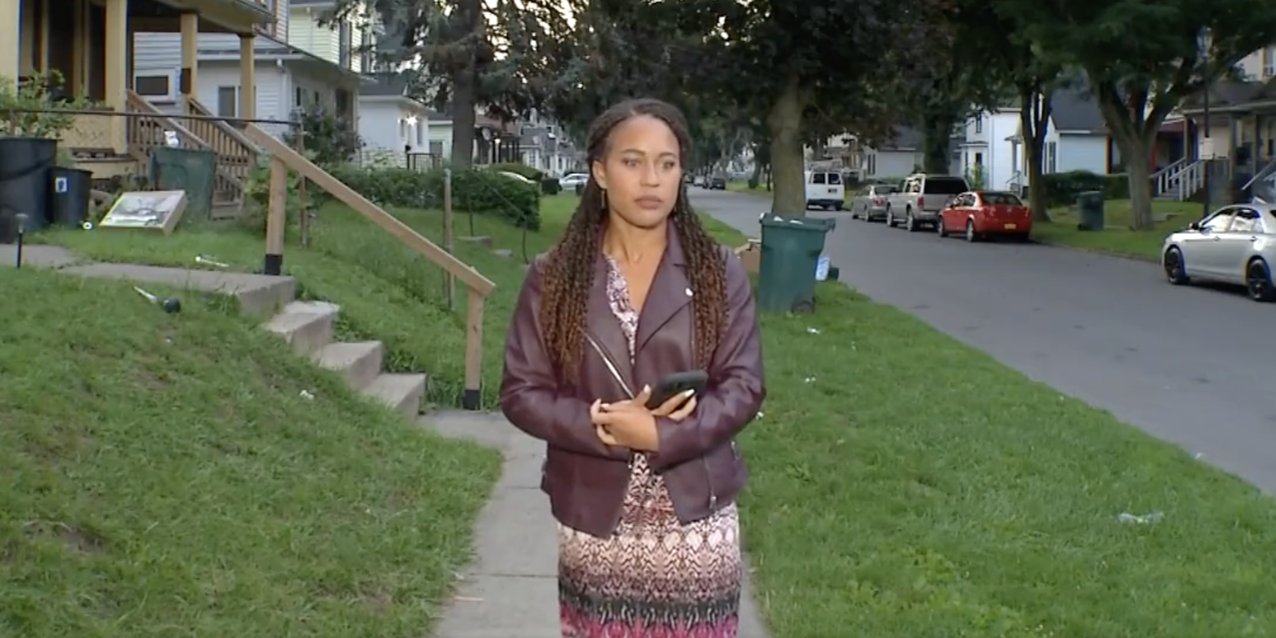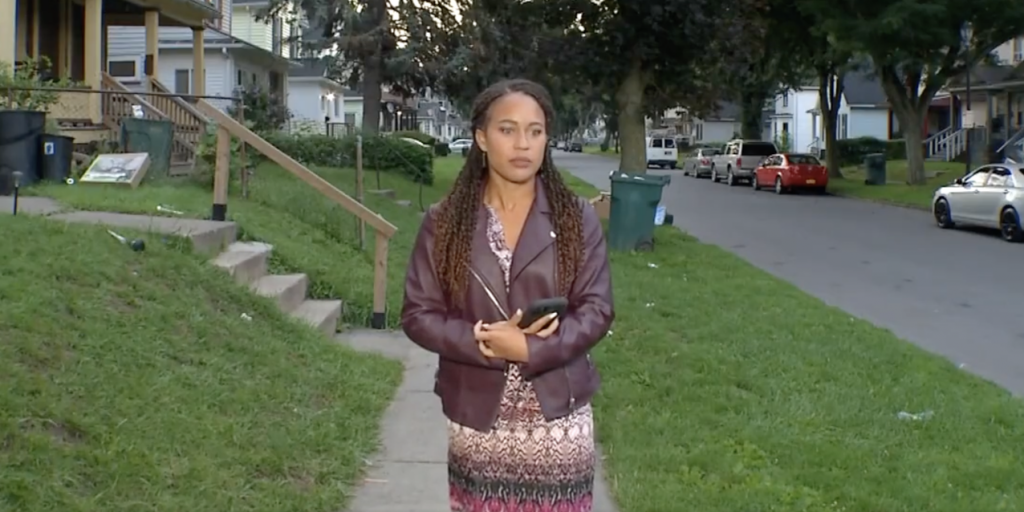
Brianna Hamblin/Twitter
- A video of news reporter Brianna Hamblin went viral, showing her being sexually and racially harassed before going live on air.
- Hamblin thanks people on Twitter for their "kind words" in reaction to her experience
- 97% of women have experienced street harassment, with such experiences over-represented among black women, and female journalists.
- Visit Insider's homepage for more stories.
One viral clip shows the realities of street harassment for women when a news reporter Brianna Hamblin was captured on camera being accosted less than a minute before going live on air.
In the clip, an unidentified man is heard approaching the Spectrum Local News journalist, in Rochester, New York, telling her that she is "beautiful as hell."
She responds to the man's insistent probes about why she is there: "Go and find a television and watch Spectrum Local News!" she says.
He then ramps up his aggression, saying: "You see, that's why I can't be left alone with a Black woman or a mulatto chick. 'Cause I can't stand these f—– white girls."
Hamblin then sends the man away with a polite but firm, "alright, that's enough, enjoy the rest of your day," at which point the man walks away muttering but can be heard saying, "you are sexy as f—."
Hamblin took to Twitter to thank everyone for the "kind things" said in response to the viral clip.
"To all the women who related to this, I'm sorry and want to give you a big virtual hug," she added.
-Brianna Hamblin (@BriReports) July 24, 2021
She continued: "Being a Black woman in this industry has its own headaches, but talking down on one group of women to "praise" another group is NEVER okay. It just shows you have a disgusting fetish based on stereotypes, which is just as racist."
Hamlin also tweeted one question universal among women: "What makes you think women want to be talked to that way?"
A video of Hamblin's experience can be seen below. The clip contains uncensored swearing.
-Brianna Hamblin (@BriReports) July 23, 2021
A UN study found that 97% of women have experienced such harassment. Black women are more likely than white women to experience harassment.
It causes anxiety, depression, and disturbed sleep, according to research.
Meanwhile, female journalists face particular problems with harassment.
A UNESCO report said: "Attacks faced by female journalists are resulting in psychological and physical harm, self-censorship, or lead them to avoid certain types of reporting, or withdraw from journalism altogether, which, therefore, has an important impact on freedom of speech and diversity in the media, and can perpetuate inequalities in newsrooms."
